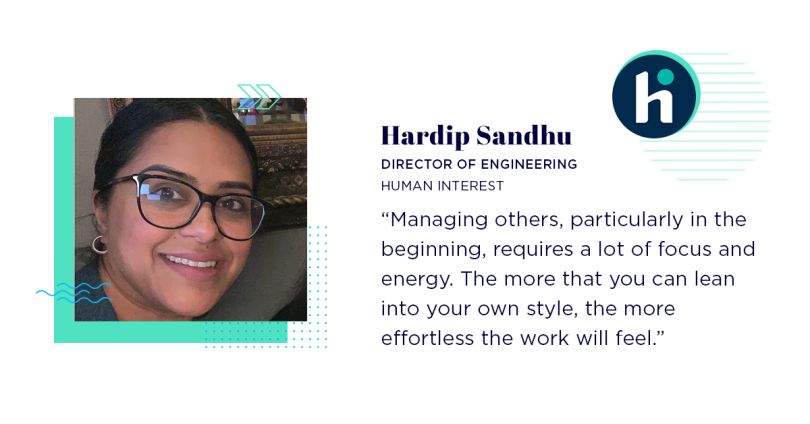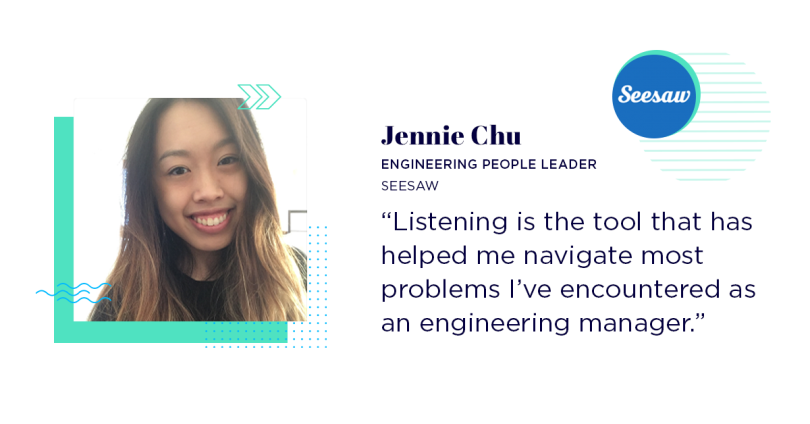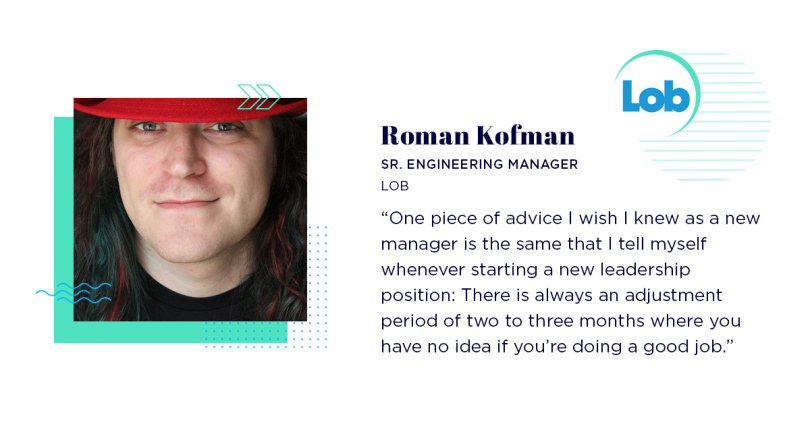According to the “Peter Principle,” a management concept circa 1969, people are promoted based on their ability to do their current role and not necessarily the one they’re stepping into. Now, it’s fair to question if any concept coined more than 50 years ago is still applicable to work today, especially in the tech industry, with its focus on professional development, 360-degree feedback and career mapping.
That said, the idea that people may not fully be prepared for promotions is valid, especially when it comes to moving from a software engineer to an engineering manager.
On paper the transition shouldn’t be too tough as both engineers and engineering managers must possess solid technical problem-solving skills. However, engineering managers actually spend as much time, if not more, solving people problems. They also spend less time in the weeds and more time looking at projects from a higher level to ensure their team is in the best position to succeed. Success is also measured differently and shifts from personal to team accomplishments.
All this is to say, being a first-time engineering manager is tough. To make life just a bit easier for managers-to-be, we spoke with five local tech leaders and asked what they wished they knew before first becoming a manager.

Be your authentic self
“I wish someone had told me three things. First, understand and embrace what makes you different. You bring your own style to the role — and that’s an asset. Second, when you first move into a manager role, it’s natural to want to model your style after someone you have worked for, but the reality is that what works for one of your direct reports doesn’t necessarily work for another. Third, we all want to work with people who bring their authentic selves to work day in and day out, and that’s true for managers, too. Managing others, particularly in the beginning, requires a lot of focus and energy. The more that you can lean into your own style, the more effortless the work will feel.”
Hardip Sandhu is the director of engineering at Human Interest, whose technology is designed to make it easier and more affordable for small and medium-sized businesses to offer 401(k) plans.

Lead through listening
“While there are many types of listening methods, I am currently focused on improving my active and reflective listening skills. Listening is the tool that has helped me navigate most problems I’ve encountered as an engineering manager. As an engineer debugging an issue, my first step was to understand the issue by looking at error logs, reading customer reports or trying to reproduce the issue. Of course, this strategy doesn’t work on people — people don’t come with error logs that tell you where something went wrong.”
“Instead, I found that in order to get to the bottom of a problem involving people, I had to genuinely understand what they were saying without judging them or offering quick solutions. This is the premise of active and reflective listening. Listening is just another tool for problem-solvers and really isn’t just for managers but for all.”
Jennie Chu is the engineering people leader at Seesaw, an edtech company whose platform lets students show their work in unique ways, gives teachers insights into their students’ thinking and brings increased transparency to the learning process for parents.

Establish an evaluation framework
“Having a clear evaluation framework by your side is imperative to your team reaching their full potential. I came to that advice when my team experienced a delay in the delivery of an important project. The underlying cause was a bit hazy given that there were many moving pieces during the execution of the project in terms of personnel, tech stack and prioritization. As I struggled to identify the root cause, my manager presented me with this evaluation framework that helps break down any engineering undertaking into three pillars: people, product and process. Having this framework allowed me to quickly digest the situation with more clarity and evaluate each aspect of the project execution more objectively. I realized that we had the right people to build the right product, but the time scoping process was flawed and didn’t account for all potential challenges. With this in mind, I was able to analyze the complex scenarios and lead my team to a successful delivery.”
Chen Guo is an engineering manager at Ethos, which uses predictive analytics to streamline the process of purchasing life insurance.

Judge yourself by your team
“There is always an adjustment period of two to three months where you have no idea if you’re doing a good job. While it’s true for most new management positions, that first transition from software engineer to manager is the most abrupt and terrifying in terms of self-perception and feedback. Realizing every new leader goes through a cycle of fears in their new role can ease the anxiety and stress. You should judge yourself by the outcomes of your team. Are they satisfied and productive? If so, you are probably doing a good job, even if you are not yet sure exactly how you’ve gotten there. Also, your words have different weight as a formal leader. What you prioritize and highlight carries much more weight because of your role. That fact can be used to create a healthy team — but if ignored, it can lead to really bad management anti-patterns.”
Roman Kofman is a senior engineering manager at Lob, whose print/mail and address verification APIs are used by companies to automate direct mail campaigns.

Manage your time wisely
“It is only once you are in a leadership role that you understand all the requirements that go with it, especially the amount of time that is required in managing people. Obviously, every successful team requires some kind of coordination, usually in the form of various meetings that require all types of preparation. But managing people also entails the short-term guiding and monitoring of day-to-day tasks and long-term planning of longer assignments and career development conversations. In between, you have the ‘expected unexpected.’ Remember all the conversations where you asked or even demanded something, be it small or large, from your manager? Now it’s your turn to be on the other side of those seemingly quick but often tough questions that require thought and planning. And you have to be able to understand and empathize with their asks. In short, becoming a successful, and sane, manager of people is often as much about becoming a manager of time.”
Sue Singer is VP of product management and technology operations at Lark Health, a chronic disease management and prevention platform that helps users with diabetes, anxiety, cardiovascular disease, and more.




